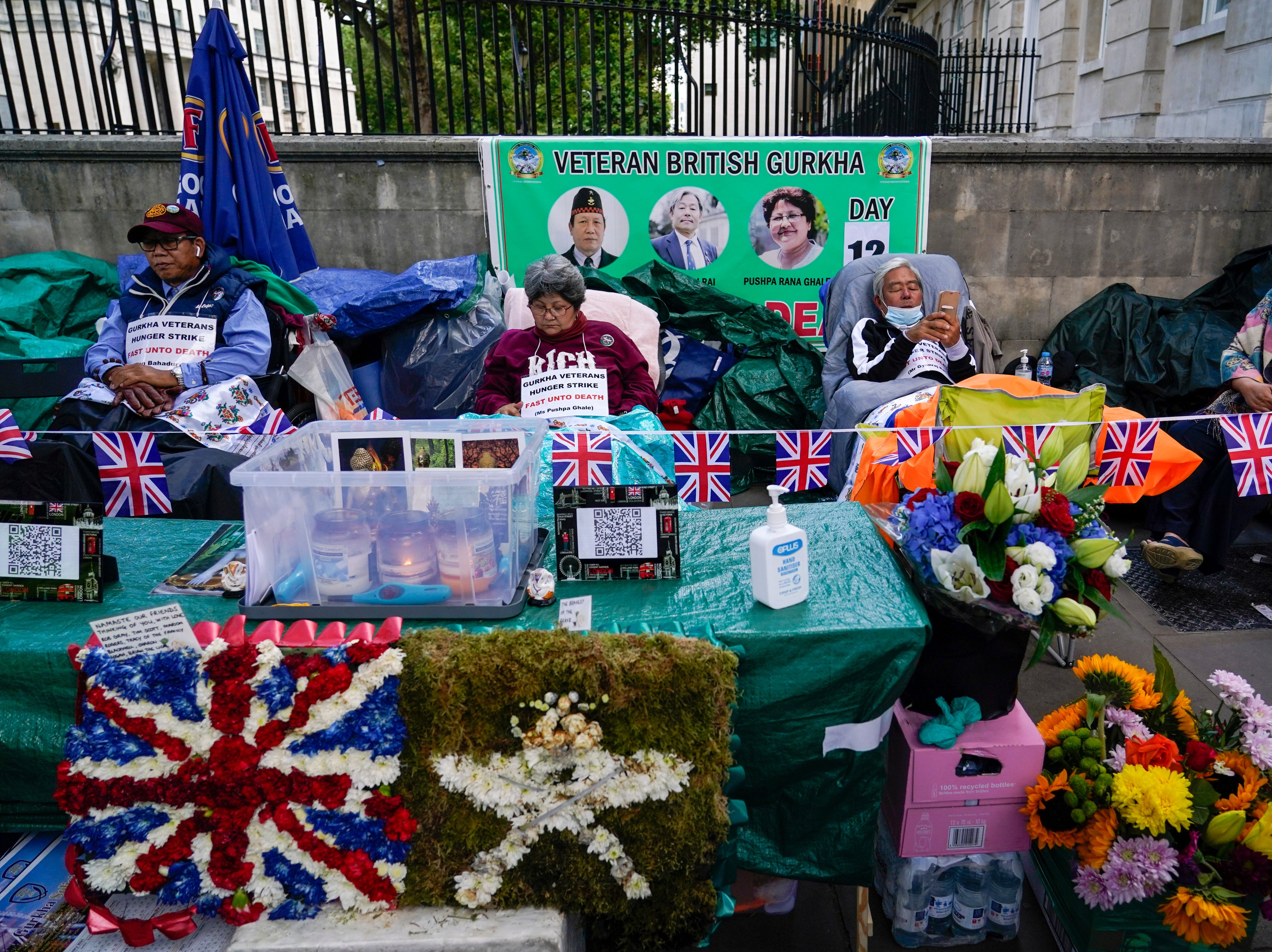Gurkhas end hunger strike after government agrees to pension payment talks
‘We look forward to meeting Nepali ambassador to move forward together,’ says MoD

A group of former Gurkha servicemen have ended their 13-day hunger strike, which saw them protest outside Downing Street and refuse to move until the government acknowledged their complaints.
The ceasefire comes after an announcement on Thursday by the Ministry of Defence (MoD) that it would enter talks with the Nepalese embassy over the issue of equal pensions for veterans.
Currently, Gurkhas who retired before 1997 receive a fraction of the pension British-born members of the army get.
In a post on Twitter, veterans minister Leo Docherty said he had already engaged in “useful discussions today” with the Nepali ambassador.
“I’m pleased that Gurkha Satyagraha [non-violent resistance] have ended their hunger strike and agreed to dialogue,” he wrote. “I value our Gurkha Veterans and my door is always open.”
The group had not eaten for almost a fortnight and sparked concerns when 60-year-old Dhan Gurung – who had refused food for 12 days straight – was admitted to hospital with heart problems in the early hours of Wednesday morning.
Protest spokesperson Yam Gurung said it was initially believed Mr Gurung, a diabetic from Basingstoke, was having a heart attack. Despite this, Mr Gurung returned to Downing Street immediately after being discharged.
He has been demonstrating in a wheelchair alongside fellow ex-soldier Gyanraj Rai, 63, and Gurkha widow Pushpa Rana Ghale, 59, who travelled from Nepal to take part.
The hunger strikers form part of a group of protesters calling for equal pensions for those Gurkhas who retired before 1997 and are not eligible to receive the same sum as UK-born army members. The discrepancy is due to the Gurkha Pension Scheme (GPS) being based on Indian Army rates.
But on Thursday afternoon, the MoD announced it would open talks with the Nepalese Embassy about the matter.
“We are happy the satyagraha group have agreed to break their fast,” a spokesperson for the department said. “Our primary concern is always the health and welfare of our serving personnel and veterans and this strike was not a course of action we encouraged.”
She added: “We look forward to meeting with the group next month alongside the Nepali ambassador to move forward together.”
Around 200,000 Gurkhas have served the British Army in both world wars and in the past 50 years in locations such as Afghanistan, Iraq, Malaysia, the Falklands, Kosovo and Borneo.
Those who served from 1948 to 2007 were members of the GPS until the differences between Gurkhas’ terms and conditions of service and those of their British counterparts were removed.
Serving Gurkhas, and those with service on or after 1 July 1997, were then able to transfer into the Armed Forces Pension Scheme (AFPS).
Last week, Mr Gurung told the BBC his pension in 1994 was £20 a month and said he and his family lived in poverty because of the British government's “penny pinching”.
He added to various reporters that the group would “continue our hunger [strike] until death” if it meant persuading the government to “solve 207 years of historical injustice”.
Additional reporting by PA
Join our commenting forum
Join thought-provoking conversations, follow other Independent readers and see their replies
Comments
Bookmark popover
Removed from bookmarks